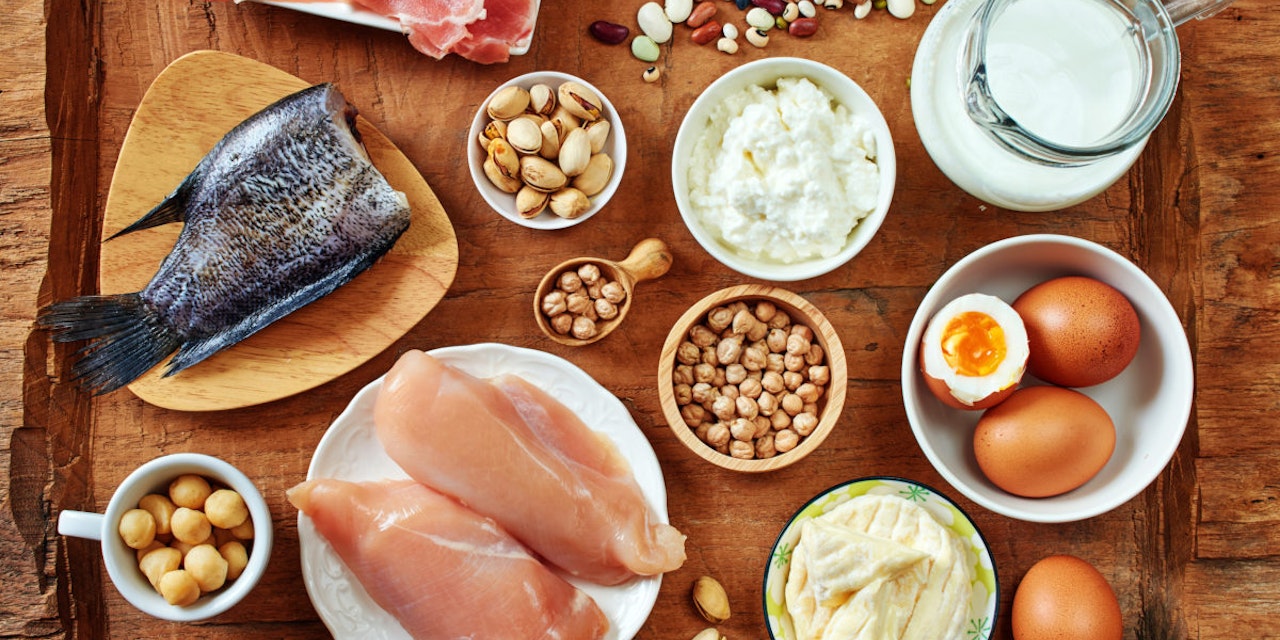The Importance of Satiety and Protein Intake during Weight Loss
Whether you're trying to lose weight or maintain your goal weight, feeling full after eating is important. Find out how protein may be the key.
- Published: 11/5/2019
- Categories:
- 4 min. read

- Published: 11/5/2019
- Categories:
- 4 min. read
Our body is amazing in many ways. One way is how it processes the food we eat to provide us with energy, and how it gives us signals to let us know that we are full. During and after weight loss, feeling full after meals is an important factor in order to choose healthy foods and maintain the new body weight. The macronutrients fat, carbohydrates and protein all influence our feeling of fullness, or satiety, but diets rich in protein play a particularly important role in our satiety experience.
What happens in our body when we feel full

To lose weight, we need to have a negative energy balance, which means that we eat less calories than we spend during the day. When doing so, it can be hard to resist tasty food temptations. Passing the bakery and its delicious smell of freshly baked buns, standing in line in the supermarket with all chocolate bars almost starring at us, or resisting the fast food restaurant on the way home from work, have never been harder. In those situations, it will be easier to make healthy choices if we are not hungry. This is where the importance of satiety comes in.
When we eat, satiety signals are gradually generated from our mouth and the rest of our gastrointestinal tract due to several factors. Expansion of the stomach is one factor that contributes to our feeling of satiety. When food enters our stomach during a meal, our stomach is enlarged by the volume of the food. This expansion releases so called satiety hormones. At the same time, nutrients from the food also stimulate several hormones in the gut that are involved in controlling our food intake. Also, digestion and absorption of the food releases even more satiety hormones. All these hormones send signals to our brain and the brain notifies us that it is time to delay our gastric emptying, increase our energy expenditure and slow down our food intake.
Leptin and insulin are two of the hormones involved in our food intake and the sensation of satiety. They signal to the brain that there is stored energy in the form of fat tissue and energy in the form of glucose, coming from the food that recently was eaten, circulating in our body. These signals form a complex network with other satiety signals, resulting in messages telling us to reduce our food intake.
Why protein intake is important for weight loss

Dietary proteins are important for several vital functions in our body. Such functions include production of body proteins, temperature regulation, blood sugar regulation, cellular communication and satiety. Interestingly, these processes are most distinct when the protein intake is above the dietary reference intake.
People who follow a high-protein diet, with approximately 30 % of the calories coming from protein, feel fuller and eat less compared to people who have a normal protein intake, corresponding to about 15 % of the total calorie intake. Protein-rich foods include fish, chicken, beans, lentils, meat, eggs, dairy products and more. When we eat protein, its building blocks, called amino acids, need to be digested. A higher intake of protein enhances the amount of amino acids in our gut and consequently increases the digestion, or oxidation, of the amino acids. This increased oxidation boosts our sensation of feeling full.
Short-term satiety is also improved with meals rich in protein. After eating a protein-rich meal, satiety is highly stimulated, compared to meals low in protein with the same amounts of calories. The explanation of this phenomenon seems to be that dietary protein generates key satiety hormones that signal to our brain that we are full.
After weight loss from an energy-restricted diet, enhancing the protein intake also increases the chance of maintaining the new body weight. Weight loss induces a decrease of energy expenditure, but an enhanced protein intake spares fat-free mass, which inhibits this decrease. A protein intake of more than 35 % of the total calorie intake has not been shown to give any additional effect. Remember to always try to eat well-balanced meals containing all macronutrients.
Summary
Sustained satiety is a key component for weight loss and weight maintenance during negative energy balance. Dietary protein gives a higher effect of satiety than carbohydrates and fat. Following a high-protein diet favour protein-induced satiety and energy expenditure, making it a beneficial diet for losing weight. However, all macronutrients have vital functions in our body, and it is important to aim for a well-balanced diet including fat, carbohydrates and protein.
Written by Ellinor Nilsson
References
All of the content and media on Lifesum is created and published for information purposes only. It is not intended to be used as a substitute for medical advice or treatment. Users should always consult with a doctor or other health care professional for medical advice. If you have or think you are at risk of developing an eating disorder, do not use the Lifesum app and seek immediate medical help.